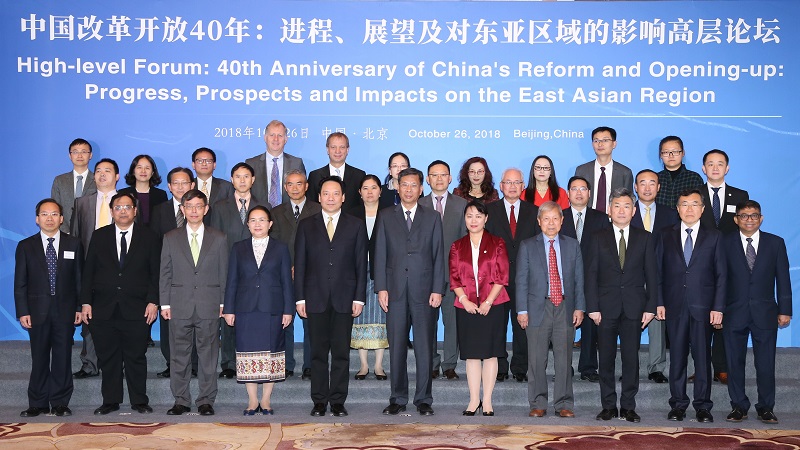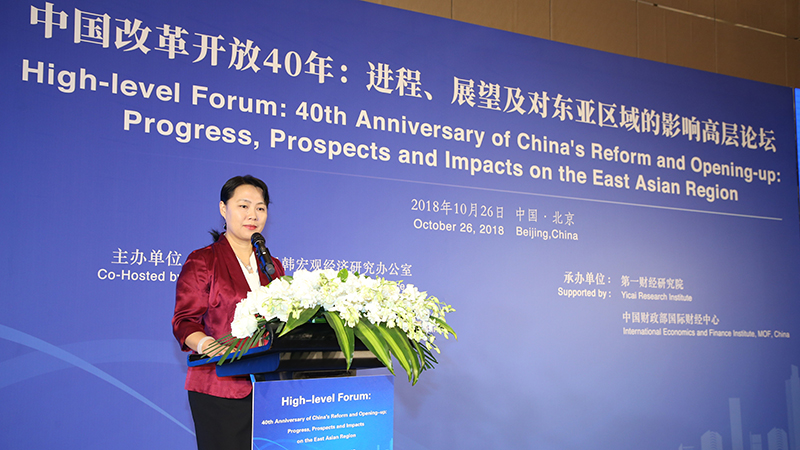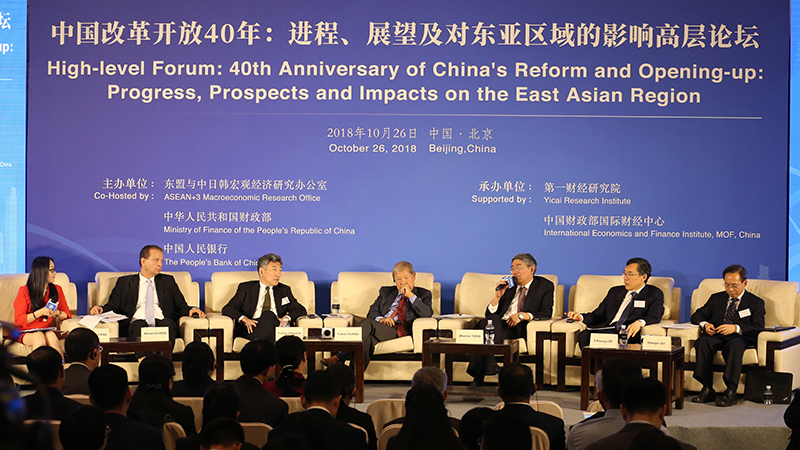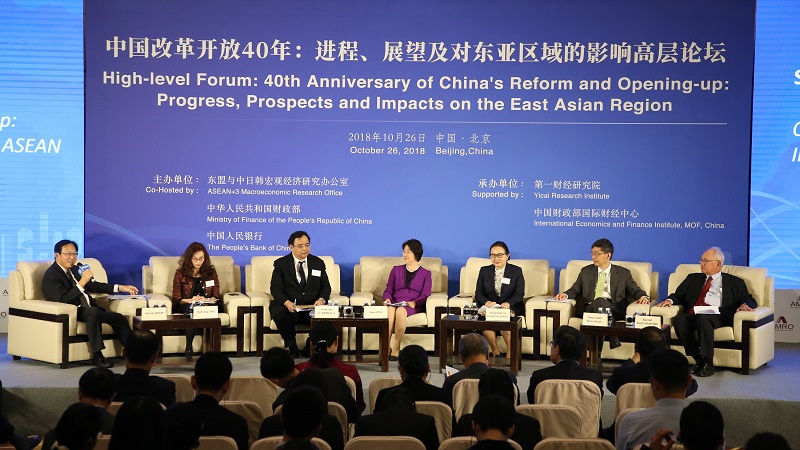High-level Forum: 40th Anniversary of China’s Reform and Opening-up: Progress, Prospects and Impacts on the East Asian Region
High-level Forum: 40th Anniversary of China’s Reform and Opening-up: Progress, Prospects and Impacts on the East Asian Region
Friday, October 26, 2018, 08:00 AM – 15:30 PM
Contact: enquiry@amro-asia.org
Location: Ritz-Carlton Hotel, Financial Street, Beijing, China
The High-level Forum on “40th Anniversary of China’s Reform and Opening-up: Progress, Prospects and Impacts on the East Asian Region,” co-organized by the ASEAN+3 Macroeconomic Research Office (AMRO), the Ministry of Finance of China, and the People’s Bank of China will be held on October 26, 2018 in Beijing, China.
The Forum will bring together high-level policymakers, renowned academics, and senior representatives from international organizations and the private sector, to discuss the experience and lessons of China’s reform and opening-up as well as implications and prospects for the East Asian region. In addition to these two main topics, the development and reform of China’s financial markets and its impact on the global and regional markets will also be discussed at a working lunch.
Over the past 40 years, China’s reform and opening-up has led to leapfrogging economic development and the expansion of China’s role at the regional and global levels, as shown by the close economic ties with its neighboring countries. While these achievements have become the bedrock for further development, China still needs to tackle several challenges to ensure a steady and sustainable growth path toward a modern industrialized economy. At the same time, neighboring countries also need to take stock and understand the implications of China’s increasing economic weight and linkages with the region so that both sides can better benefit from the growing economic ties and strengthening cooperation.
AMRO’s research titled “China’s Reform and Opening-up: Experiences, Prospects and Implications for ASEAN” launched in Beijing on October 25 will be used as background information for discussion.
The event will be open to interested participants and the media. Please go to the registration page to register for the event.
RegisterProgram
Photos




